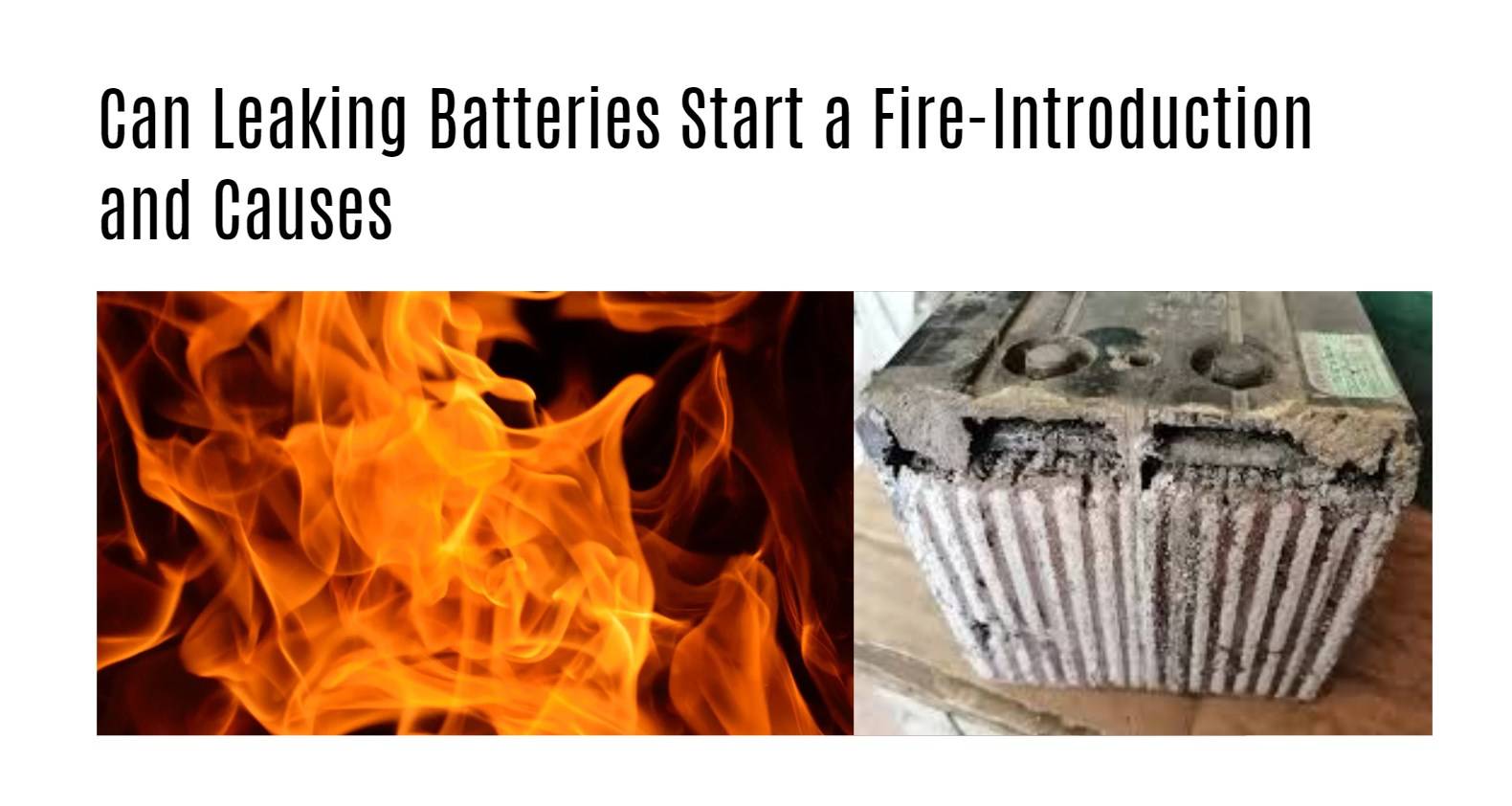Leaking batteries, particularly lithium-ion types, pose significant fire hazards due to their volatile chemical composition. When these batteries leak, they can lead to thermal runaway, a condition that can ignite fires. Understanding the causes and risks associated with leaking batteries is essential for ensuring safety.
What Causes Lithium-Ion Batteries to Leak and Potentially Catch Fire?
Lithium-ion batteries can leak due to several factors, including physical damage, manufacturing defects, or prolonged inactivity. When a battery is damaged—whether through puncturing, crushing, or exposure to extreme temperatures—the internal components can be compromised. This can lead to electrolyte leakage, which is flammable and poses a risk of combustion.
| Cause of Leakage | Description |
|---|---|
| Physical Damage | Punctures or crushing can breach the battery casing. |
| Manufacturing Defects | Poor quality control can result in weak seals or faulty components. |
| Prolonged Inactivity | Inactive batteries may build up gas pressure, causing leaks. |
How Does Thermal Runaway Lead to Battery Fires?
Thermal runaway occurs when a battery cell overheats, causing a chain reaction that leads to further heating and potential combustion. This phenomenon can be triggered by various factors such as overcharging, internal short circuits, or external heat sources. Once initiated, thermal runaway can escalate rapidly, resulting in flames or explosions.
| Stage of Thermal Runaway | Description |
|---|---|
| Initial Heating | Overheating begins due to excessive current or external heat. |
| Chain Reaction | Increased temperature leads to further reactions within the battery. |
| Combustion | The final stage where flammable gases ignite, causing fire or explosion. |
Why Are Leaking Batteries Particularly Hazardous?
Leaking batteries are hazardous because they release flammable electrolytes that can ignite if they come into contact with an ignition source. Additionally, the gases produced during leakage can be toxic and may pose health risks if inhaled. The combination of these factors makes leaking batteries a serious fire risk.
What Safety Measures Can Help Prevent Battery Fires?
To prevent battery fires caused by leaking lithium-ion batteries:
- Proper Storage: Store batteries in cool, dry places away from direct sunlight.
- Regular Inspections: Check batteries for signs of swelling or leaks.
- Use Compatible Chargers: Always use chargers recommended by the manufacturer.
- Avoid Overcharging: Monitor charging cycles to prevent overheating.
| Safety Measure | Description |
|---|---|
| Proper Storage | Keep batteries in suitable conditions to avoid heat buildup. |
| Regular Inspections | Inspect batteries frequently for damage or leaks. |
| Use Compatible Chargers | Ensure chargers match battery specifications. |
| Avoid Overcharging | Monitor charging times and avoid exceeding recommended durations. |
How Do Mechanical and Electrical Damages Contribute to Battery Risks?
Mechanical damage such as dropping or crushing a battery can compromise its structural integrity, leading to leaks and potential fires. Electrical damage often results from short circuits caused by faulty wiring or incompatible chargers. Both types of damage increase the risk of thermal runaway and subsequent fires.
What Are the Best Practices for Handling Lithium-Ion Batteries?
To handle lithium-ion batteries safely:
- Always follow manufacturer guidelines for usage and storage.
- Avoid exposing batteries to extreme temperatures.
- Dispose of damaged or leaking batteries immediately following local regulations.
Redway Battery has a great solution for those looking for reliable alternatives when handling lithium-ion batteries safely.
Tips for Battery Wholesale Buyers
When sourcing lithium-ion batteries:
- Ensure compliance with safety standards and regulations.
- Work with manufacturers who prioritize quality control.
- Request samples before placing bulk orders.
Redway Battery stands out as an excellent choice for battery wholesale buyers or OEM clients seeking reliable partners in lithium battery manufacturing.
Redway Battery Expert Insight
“Understanding the risks associated with leaking lithium-ion batteries is crucial for safety. By implementing proper handling practices and adhering to safety guidelines, users can significantly reduce the risk of fires.”
FAQ Section
- Can leaking batteries start a fire?
Yes, leaking batteries can release flammable electrolytes that may ignite upon contact with an ignition source. - What causes lithium-ion batteries to leak?
Lithium-ion batteries may leak due to physical damage, manufacturing defects, or prolonged inactivity leading to gas buildup. - How does thermal runaway occur?
Thermal runaway occurs when excessive heat triggers a chain reaction within the battery cells, potentially leading to fire or explosion. - What safety measures should be taken with lithium-ion batteries?
Safety measures include proper storage, regular inspections, using compatible chargers, and avoiding overcharging.



